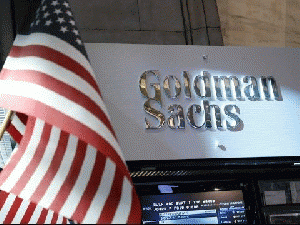Reprinted from Campaign For America's Future
"I've said if the big banks don't play by the rules, I will break them up."
Hillary Clinton
Our nation's largest and most powerful banks have repeatedly engaged in widespread fraud, causing both individual suffering and a recession that millions of Americans are still living through today.
They continued to commit the same frauds after the American people rescued them, and after they promised to stop as part of some major settlement agreements. There's no reason to believe they've stopped today, and every reason to believe they haven't.
Fraud is an essential part of Wall Street's DNA. A 2015 survey, commissioned by law firm Labaton Sucharow, found that a deeply immoral culture had taken root among British and American bankers.
The survey showed that bankers' ethical behavior is bad and getting worse. The percentage of bankers who believed their own colleagues had engaged in illegal or unethical behavior has nearly doubled since 2012. More than one-third of those earning $500,000 or more annually said they had first-hand knowledge of wrongdoing in the workplace.
It also showed that financial institutions seem to condone, encourage, and protect illegal behavior. The survey found that "nearly one-third of respondents (32 percent) believe compensation structures or bonus plans in place at their company could incentivize employees to compromise ethics or violate the law." And it found "a proliferation of secrecy policies and agreements that attempt to silence reports of wrongdoing ..."
William Dudley, president of the Federal Reserve Bank of New York, said in 2013 that there was an "important problem evident within some large financial institutions -- the apparent lack of respect for law, regulation and the public trust," adding: "There is evidence of deep-seated cultural and ethical failures ..."
Which gets us to Bernie Sanders' often-repeated refrain that "the business model of Wall Street is fraud." A "business model" is a plan for making money. Is fraud really an essential part of the way Wall Street banks make money?
When it comes to retail banking -- serving ordinary customers -- they've already all but admitted it. After Congress moved to restrain some of the banks' cheating and overcharging, a JPMorgan Chase executive said that customers with less than $100,000 in investments and assets would no longer be "profitable" for the megabank.
That's tantamount to confessing that they need to bilk ordinary customers -- by doing things like hiding overdraft charges, making checks bounce by manipulating the order in which they're cashed, and charging excessive ATM fees -- in order to make money as a consumer bank.
But that's not the only line of business where banks commit fraud. The major offenses committed by our largest banks include "price fixing, bid rigging, market manipulation, money laundering, document forgery, lying to investors, sanctions-evading, and tax dodging."
Wall Street has now paid more than $200 billion in fines and settlements for fraudulent activity. This almost unimaginable sum can be broken down into slightly more digestible (though still enormous) portions by looking at the amounts paid by individual banks.
As of last October, Bank of America had paid more than $77 billion to settle fraud charges. Citigroup, the megabank created with bipartisan cooperation from Republican Senator Phil Gramm and Clinton Treasury Secretary Robert Rubin (who later became the bank's chief executive), had paid nearly $20 billion.
(Newly released papers from the Financial Crisis Inquiry Commission show that the Commission voted to refer Rubin to the Justice Department for investigation, but there is no evidence that any action was taken.)
JPMorgan Chase, the bank that was once held up by pundits and politicians as the model of a well-run financial institution, paid more than $30 billion in fines and settlements over four years.
(Note: You can view every article as one long page if you sign up as an Advocate Member, or higher).






